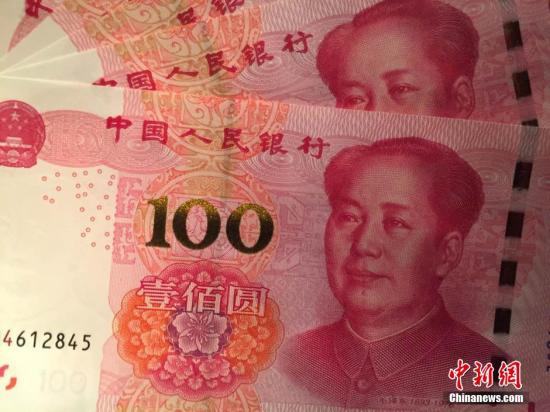
The growth rate of China’s RMB bank account deposits has fallen to a record low, as Chinese people today prefer to invest their money rather than save it in a fixed deposit account, while most people pay a large chunk of their income to mortgages or rent, The Beijing News reported on Sept.27, 2018.
Since the beginning of this year, the growth rate of RMB deposits has stayed firmly below 9 percent. Latest statistics released by the People’s Bank of China, China’s central bank, indicate that the growth rate of deposits in China’s financial institutions fell to 8.3 percent in August, the lowest in the past 40 years.
The growth rate of deposits in the residential sector plunged from 18 percent in 2008 to around 7 percent this year. By July 2018, China’s household savings totaled approximately 69.24 trillion yuan (about $10.1 trillion), a decrease of 293.2 billion yuan from the previous month. Moreover, this April, household deposits dropped by 1.32 trillion yuan compared with the month before.
It’s believed that the country’s diversified investment channels have taken away money which would have otherwise ended up in the bank.
The country’s fast-growing financial system has offered citizens more options for investment, including money market funds, stock trading, non-monetary investment funds, and online financial management systems.
“Bank savings? No, I don’t have any,” a woman who is almost 30 and works in the financial circle, told The Beijing News. She added, “I don’t think about keeping a bank deposit, as the interest rates are too low. I invest most of my spare money.”
Now, people can handle their finances with convenient mobile apps and mobile banking services, which offer more flexibility and better interest rates. A bank clerk noted that young people today prefer to use financial services online.
According to incomplete statistics from The Beijing News, by the end of this June, six investment funds linked to Alibaba's Yu’e Bao, a money market fund, amounted to over 1.86 trillion yuan.
Besides new investment channels, most people pay a large portion of their salary to mortgage and rent costs.
As indicated by data from China’s central bank, by the end of 2001, residential mortgages in China’s commercial banks made up less than 60 billion yuan, which rose to 21.9 trillion yuan by the end of 2017, a compound annual growth rate of 44.59 percent.
“Half of my salary is used to pay the mortgage, and the rest is to support my daily life,” an employee with three years working experience told The Beijing News, disclosing that although he earns 30,000 yuan a month, he only has around 2,000-3,000 yuan spare at the end of every month.
For young people living in big cities, rent is now incredibly expensive. A young man working in east China’s Shanghai told The Beijing News that he makes about 15,000 yuan a month, but has to pay a monthly sum of 4,500 yuan for rent.
“My rent has risen to about 36,000 yuan a year,” said a woman who works in China’s capital Beijing, adding that it’s difficult for her to save money as her rent increased by 500 yuan last month.
Although there are many external factors, Chinese banks must realize that as the largest financial institutions, their service quality and interests for people are far less than those of new financial investment platforms, explained Jiang Han, a researcher of Suning Institute of Finance, an institute of China's consumer electronics retailer Suning.com.
If banks don’t seek to change themselves, they might find themselves overthrown by other financial institutions in the future, said Jiang.


